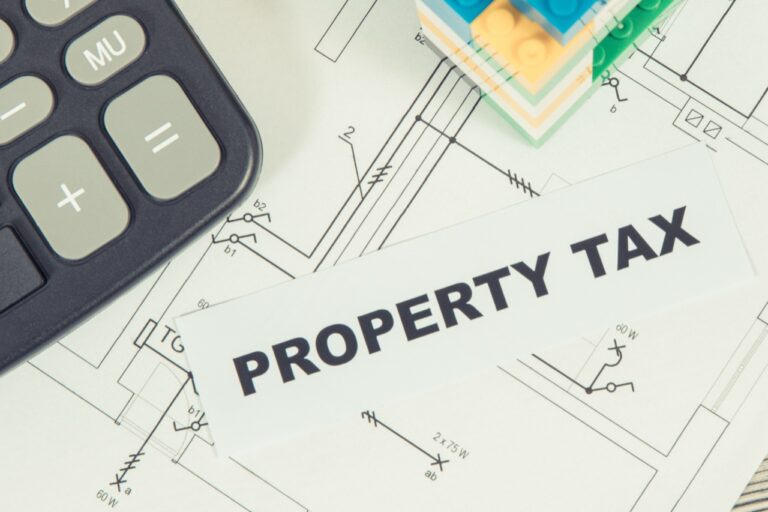If you’re buying a home in Ontario or already have a mortgage, you’ve probably heard about property taxes. These taxes are often discussed during the home buying process, but many people are unsure how they actually affect their mortgage payments.
Whether you’re a first-time buyer or renewing your mortgage, it’s important to understand how property taxes work in Ontario and how they tie into your monthly housing costs.
What Are Property Taxes?
Property taxes are annual fees paid to your local municipality. The money goes toward services like garbage collection, road maintenance, police and fire departments, public transit, and schools.
The amount you pay depends on two things:
- The assessed value of your home, determined by MPAC (the Municipal Property Assessment Corporation)
- The tax rate set by your municipality
In most cases, the higher your home’s value, the more you’ll pay in property taxes. Tax rates vary between cities and towns across Ontario.
Do Property Taxes Affect Your Mortgage Payment?
Yes, but not in the way people often expect. Property taxes don’t directly change your mortgage interest rate or loan terms. Instead, they affect your total monthly payment, especially if your lender collects taxes on your behalf.
There are two main ways property taxes are handled with a mortgage in Ontario:
- Collected by the lender (often called P.I.T. — principal, interest, and taxes)
- Paid by the homeowner directly to the municipality
Let’s break down both options.
1. Lender-Collected Property Taxes
Some lenders in Ontario prefer or even require that your property taxes be included with your mortgage payment. In this case, your lender estimates your annual property tax amount and divides it into monthly installments. These are added to your mortgage payment, and the lender pays the city on your behalf.
This setup is common for buyers with less than 20 percent down or with insured mortgages. It’s also a good option for homeowners who prefer to avoid large lump-sum tax bills.
Pros:
- Simplifies budgeting with one monthly payment
- Ensures taxes are paid on time
Cons:
- Less flexibility in how and when you pay
- Monthly payments can change if your tax rate or home value changes
2. Paying Property Taxes Yourself
If your lender allows it, you can choose to pay your property taxes directly to your municipality. Most cities offer monthly, quarterly, or annual billing options.
This method gives you more control over your cash flow, but it also means you need to stay organized and make sure payments are made on time to avoid penalties.
Pros:
- Flexibility in payment schedule
- Easier to manage your own money
Cons:
- Requires more financial discipline
- Risk of missed payments if not tracked closely
How Are Property Taxes Calculated?
In Ontario, MPAC updates your property’s assessed value every four years. Municipalities then apply their tax rate to that value.
For example, if your home is assessed at $600,000 and your municipal tax rate is 1.1 percent, your annual property taxes would be approximately $6,600. That’s about $550 per month added to your housing costs.
Can Property Taxes Change Over Time?
Yes. Your property tax bill can increase if:
- Your home’s assessed value increases
- Your municipality raises its tax rate
- You complete major renovations that increase the home’s value
Because of this, your mortgage payment may go up if your lender is collecting your property taxes and your taxes rise. Even if your mortgage rate stays the same, your monthly payment could still increase.
What Happens When You Renew or Refinance?
When renewing or refinancing your mortgage, your lender may reassess whether they want to continue collecting your property taxes. If your taxes have gone up, your lender might adjust your monthly payment to make sure they are collecting enough.
If you’re switching lenders or refinancing for the first time in a while, it’s a good time to revisit how you want to manage your property taxes.
If you’re unsure how property taxes will affect your next mortgage term, feel free to contact us for help reviewing your options.
Can You Include Property Taxes in Your Mortgage Application?
When applying for a mortgage, your lender will factor in property taxes when calculating how much you can afford. This affects your total debt service ratio, which is one of the main criteria used to qualify you.
Even though the taxes are separate from the loan itself, they are considered part of your total monthly housing cost. That’s why it’s important to get an accurate estimate during the application process.
If you’re ready to apply for a mortgage and want to see how property taxes might affect your approval, you can start the process online here.
Final Thoughts
Property taxes are a significant part of owning a home in Ontario. While they don’t change your mortgage interest rate, they do affect how much you pay every month — especially if your lender collects them as part of your mortgage.
Whether you’re buying your first home or renewing your mortgage, understanding how property taxes work can help you plan ahead and avoid surprises.
